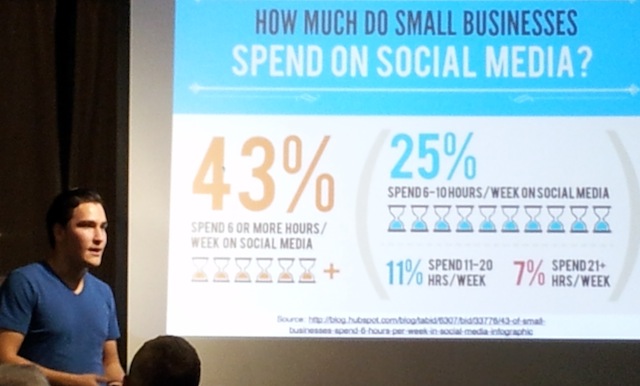Introduction
When it comes to making your money work for you, real estate has always been a solid choice. After all, who hasn’t heard of the riches people have made flipping houses or collecting rent checks? But let’s face it: buying property isn’t always practical. The upfront costs are massive, and you have to deal with maintenance, tenants, and taxes.
Enter REITs—the shortcut to real estate profits without the headache. REITs, or Real Estate Investment Trusts, allow anyone, no matter how small their budget, to invest in real estate. You can skip all the hassle of finding, buying, and managing property. Instead, you just buy shares in a trust that owns and operates real estate. Sounds too good to be true? Well, it might be the solution you’ve been looking for.
What Are REITs?
Think of REITs as the Netflix of the real estate world. They give you access to a huge library of properties—without having to rent or own a single one yourself. A REIT is a company that owns, operates, or finances income-producing real estate. They make it possible for regular folks like you and me to invest in huge real estate projects that we could never afford on our own.
Here’s the cool part: REITs trade just like stocks on the stock market. This gives you the benefit of liquidity, meaning you can buy and sell shares easily. No more waiting months or years to sell a property.
There are different types of REITs:
- Equity REITs own and operate properties like shopping centers, office buildings, or residential complexes.
- Mortgage REITs lend money to property owners or invest in real estate debt, like mortgage-backed securities.
- Hybrid REITs combine both equity and mortgage REIT strategies, offering a mix of real estate ownership and debt financing.
Advantages of Investing in REITs
Let’s break down why REITs are such an attractive alternative to buying property:
1. Low Capital Requirements
In 2024, the average home price in the U.S. reached about $400,000. That’s a lot of money to come up with for a single property. With REITs, you don’t need a down payment, and the minimum investment can be as low as $100 in some cases. Instead of saving for years to buy your own building, you can get started with a small amount and still benefit from the real estate market.
2. Diversification
Imagine owning shares in a single building—it could be risky if that building’s value drops. But when you invest in a REIT, you get access to a whole portfolio of properties, which helps spread the risk. REITs can give you exposure to multiple property sectors (residential, commercial, industrial) and even different geographic areas. For example, some REITs own properties in New York, London, and Tokyo, giving you a global real estate footprint with minimal effort.
3. Liquidity
When you buy a house, it could take months (or even years) to sell it. But if you invest in a REIT, you can buy or sell shares on the market in just minutes. In fact, REITs are often listed on major exchanges like the New York Stock Exchange (NYSE), making them much more liquid than physical properties.
4. Steady Income Stream
Many REITs pay out 90% of their taxable income as dividends. This means that if you invest in a REIT, you’re likely to receive regular income—much like collecting rent. For example, in 2023, Realty Income (known as the “Monthly Dividend Company”) paid out monthly dividends to investors, and its stock price grew by 13%.
5. No Property Management Hassles
Owning a property means dealing with repairs, finding tenants, and handling all the headaches that come with it. If you invest in a REIT, all of that is managed by professionals. You don’t need to deal with leaky faucets or late-night phone calls from tenants. The REIT takes care of everything, while you sit back and collect your share of the profits.
REITs vs. Physical Real Estate: A Comparative Analysis
Let’s get into the nitty-gritty of comparing REITs with buying a physical property:
1. Capital Requirements
It’s not unusual for a down payment on a home to be 20% of the property’s value. That means for a $400,000 house, you’d need to come up with $80,000 upfront. With REITs, you could start investing with as little as $100. That’s a massive difference, right?
2. Time and Effort
Managing a property can be a full-time job. You’ve got to market it, find tenants, and handle maintenance. Even with a property manager, it takes time and effort. With REITs, you can manage your investment with a few clicks of a button. No phone calls about broken appliances, no paperwork, just passive income.
3. Risk Factors
With physical property, you risk vacancy, market downturns, and unpredictable repairs. But with REITs, risks are spread out. If one property underperforms, it’s just a small part of a much larger portfolio. Still, REITs can be affected by market conditions, interest rates, and the specific sectors they focus on.
4. Tax Considerations
When you own a rental property, you can benefit from tax deductions like mortgage interest, depreciation, and repairs. REITs also offer tax benefits—though instead of depreciation, investors get the benefit of high dividends. Keep in mind that dividends are taxed at ordinary income tax rates, which could be higher than the capital gains tax rate.
How to Invest in REITs
If you’re ready to jump in, here’s how to start investing in REITs:
1. Direct Investment via Stock Exchange
The easiest way to buy REITs is through a brokerage account. In 2023, there were over 200 publicly traded REITs on major exchanges, so you’ll have plenty of options. Just like buying stocks, you can purchase shares of a REIT from a platform like Robinhood, E*TRADE, or Fidelity.
2. REIT Mutual Funds and ETFs
If you want to diversify even further, consider investing in a REIT-focused ETF or mutual fund. These funds pool together multiple REITs, so you can invest in a variety of real estate assets in one go. Popular REIT ETFs include the Vanguard Real Estate ETF (VNQ) and the Schwab U.S. REIT ETF (SCHH).
3. Considerations Before Investing
Before you dive in, consider a few things:
- Type of REIT: Do you want to invest in commercial properties, residential buildings, or maybe warehouses?
- Dividend Yield: Look for REITs with consistent dividend payouts.
- Management: A solid track record of management can make a huge difference in a REIT’s performance.
Potential Downsides and Risks of REIT Investment
Despite the benefits, REITs are not risk-free. Here are a few things to keep in mind:
1. Market Volatility
The value of a REIT can go up and down depending on the stock market’s performance. In 2022, for instance, the average REIT performance dropped by 5.7%, largely due to inflation concerns and interest rate hikes.
2. Interest Rate Sensitivity
REITs are often sensitive to interest rate hikes. When the Federal Reserve raises rates, the cost of borrowing increases, which can affect the profitability of REITs. Mortgage REITs are especially vulnerable to this.
3. Dividend Reliability
While many REITs are known for paying consistent dividends, these payouts can be reduced or suspended during tough times. In 2020, due to the COVID-19 pandemic, several REITs cut their dividends in response to financial strain.
4. Overexposure to One Sector
Some REITs focus on specific types of real estate, such as office buildings or shopping malls. If the demand for these properties drops, the REIT may underperform. For instance, the shift to online shopping hurt retail-focused REITs, leading to a 12% decline in retail REITs in 2022.
The Future of REITs and Real Estate Investment
As the world changes, so do the opportunities in real estate. Sustainability is a growing trend, and many REITs are focusing on green buildings that reduce energy consumption. Digital real estate is also on the rise—think about REITs that invest in data centers or mobile tower infrastructure, which are in high demand with the growth of cloud computing. To find more detailed information visit https://azaliumbit.top/.
Conclusion
REITs are a great way to dip your toes into the real estate market without the massive capital commitment and headaches of owning property. They offer diversification, liquidity, and regular income with a relatively low barrier to entry. Sure, there are risks, but like any investment, doing your research and understanding the market can help you make smart decisions.
If you’re ready to invest, take the plunge, and remember: whether it’s your first property investment or your hundredth, REITs offer an exciting, modern way to grow your wealth.
Next Steps
Ready to start? Research your options, choose a REIT that fits your goals, and consult with a financial advisor if you need guidance. The world of real estate is just a click away!


